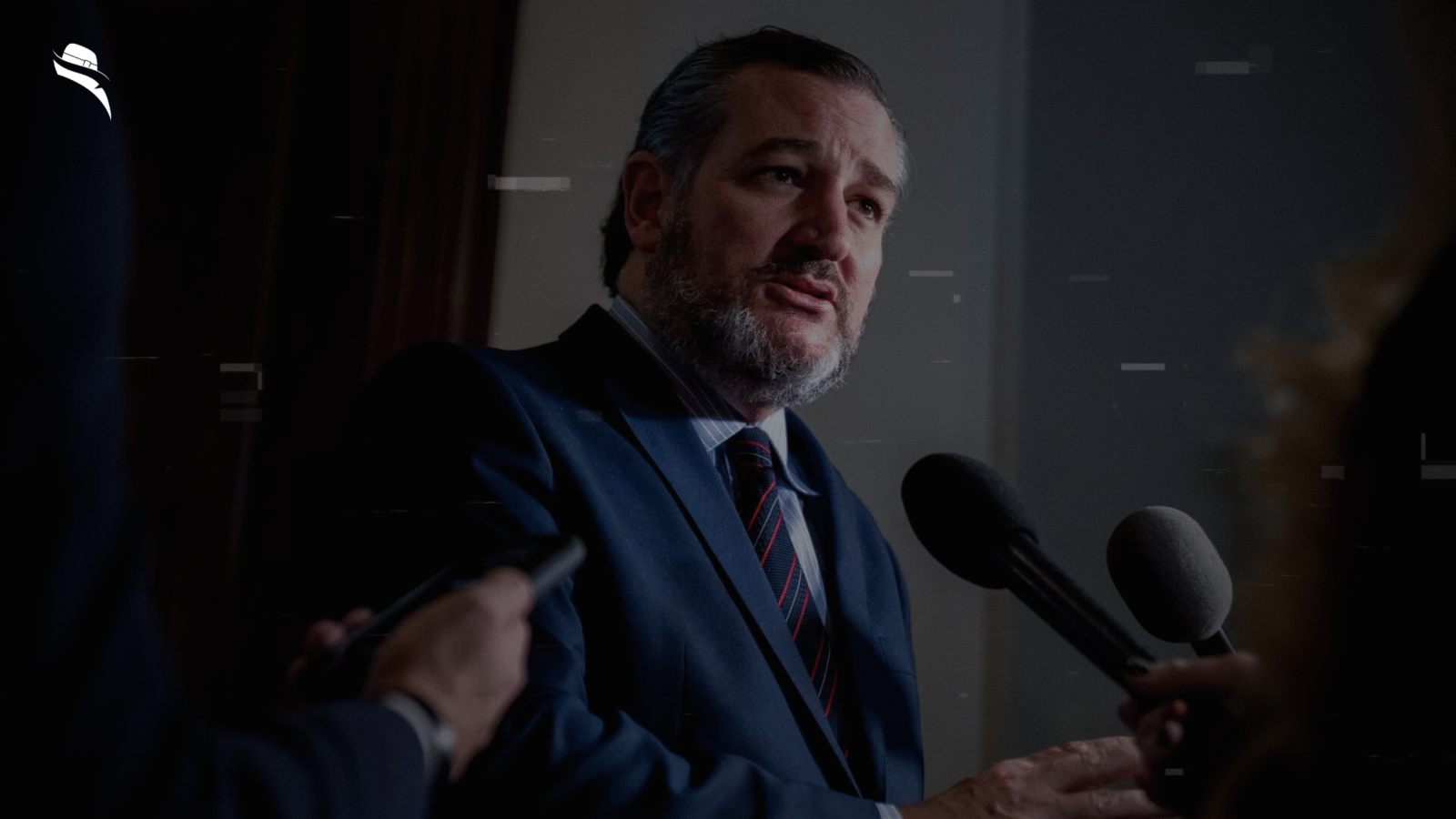Ted Cruz stance on Israel notably diverges from mainstream political consensus. In a revealing move, when the pro-Israel lobby AIPAC released a letter calling on President Obama to oppose one-sided U.N. intervention in the Israeli-Palestinian conflict, 88 of 100 U.S. senators signed it; however, Cruz was among the few who did not. This decision highlights his distinctive position on Israel-related policies.
Despite being widely recognized as pro-Israel, Cruz approaches this alliance differently than many of his colleagues. In fact, he opened his 2016 AIPAC speech with the controversial declaration that “Palestine has not existed since 1948”. His position on Israel intersects with his broader foreign policy views, particularly regarding Iraq and Iran. Cruz has consistently promised to “rip to shreds” the Iran nuclear deal and has developed financial ties with pro-Israel political action committees, receiving $16,000 for his successful 2012 campaign. Furthermore, Cruz has connections with GOP megadonor Sheldon Adelson, who funds the Israeli American Council, a right-wing competitor to the bipartisan AIPAC, which describes itself as having 5 million members and 17 regional offices.
Ted Cruz Stance on Israel: A Departure from Tradition
Senator Ted Cruz has carved out a distinctive approach to Israel policy, distinguishing himself through positions that often break with mainstream political perspectives. Unlike most senators who advocate for a two-state solution, Cruz stands firmly against this widely accepted framework for peace in the Middle East.
Support for Israel without endorsing two-state solution
Cruz rejects the two-state solution that has been a cornerstone of U.S. foreign policy for decades. During his presidential campaign, he emphatically stated that a Palestinian state would be a “terrorist state.” His vision instead supports Israel’s right to maintain control over territories claimed by Palestinians. Additionally, Cruz pledged to move the American embassy to Jerusalem—a promise he consistently advocated for before President Trump eventually implemented it. This stance aligns with his broader view that Israel holds historical and legal rights to disputed territories.
Criticism of U.S. involvement in peace negotiations
Although Cruz projects unwavering support for Israel, he remains skeptical about U.S. diplomatic involvement in the peace process. He has repeatedly criticized American attempts to broker peace agreements between Israelis and Palestinians, calling such efforts “counterproductive” and “misguided.” Moreover, Cruz opposes U.S. pressure on Israel regarding settlement construction, believing that Israel should determine its own security needs without external influence. This position marks a significant departure from traditional bipartisan approaches that view active American mediation as essential.
Alignment with right-wing Israeli policies
Ted Cruz stance on Israel closely mirrors positions held by right-wing Israeli political factions. He has developed relationships with conservative Israeli leaders who oppose territorial concessions and favor settlement expansion. While mainstream American politicians typically maintain balanced relationships across the Israeli political spectrum, Cruz has shown particular affinity for hardline positions. His references to Judea and Samaria—biblical names for the West Bank—rather than using terms like “occupied territories” demonstrate his ideological alignment. This terminological choice reflects his support for Israeli sovereignty over these disputed areas.
Throughout his political career, Cruz has maintained these positions consistently, even when they placed him at odds with traditional U.S. diplomatic approaches toward the Israeli-Palestinian conflict.
Military and War Policy: From Iran to Iraq
Senator Ted Cruz’s hawkish foreign policy views shape his approach to Middle East conflicts, especially concerning Iran and Iraq. His positions often reflect his strong support for Israel and skepticism of diplomatic solutions with adversaries.
Opposition to the Iran nuclear deal
Cruz has consistently condemned the Iran nuclear deal, labeling it “catastrophic” and “the single greatest national security threat facing America”. In dramatic terms, he warned that “Americans will die, Israelis will die, Europeans will die” if the agreement proceeded. Consequently, he spearheaded an amendment requiring presidential submission of any renewed nuclear deal to Congress as a treaty. Cruz claimed the Obama administration avoided Senate review because “they knew it faced majority bipartisan opposition”.
Support for aggressive military posturing
Cruz’s confrontational stance toward Iran became evident during a heated exchange with Tucker Carlson, where Cruz stated, “We are carrying out military strikes” regarding Israel’s actions against Iran. Specifically, while not advocating for U.S. troops in Iran, Cruz told reporters the president “could quite reasonably make the decision” to bomb Iran’s nuclear site at Fordo. He has boldly claimed that Biden administration policies “funded the October 7th terrorist attack” through support for Iran.
Ted Cruz’s Iraq war stance and its evolution
Regarding Iraq, Cruz has subsequently shifted his position, acknowledging that “of course not,” he would not have authorized the invasion knowing what we know now. He called the Iraq war a “mistake” and admitted the intelligence about weapons of mass destruction was false.
Views on U.S. military aid to Israel
Cruz strongly advocates for “unequivocal military and diplomatic support” to Israel. He has criticized the Biden administration for allegedly “withholding weapons” Israel needed and pledged support for Israel in its campaign to utterly eradicate Hamas.
AIPAC and Beyond: Cruz’s Relationship with Pro-Israel Lobbies
Ted Cruz’s interactions with pro-Israel lobbying organizations reveal a complex political strategy that differs from many of his colleagues.
Cruz’s appearances at AIPAC conferences
Cruz has maintained a notable presence at AIPAC events, often using these platforms to reinforce his hardline stance. At his 2016 AIPAC speech, he boldly declared that “Palestine has not existed since 1948,” setting himself apart from the diplomatic language typically used at such forums.
Ties to Sheldon Adelson and the Israeli American Council
Behind the scenes, Cruz cultivated relationships with influential pro-Israel donors, particularly GOP megadonor Sheldon Adelson. This connection gave Cruz access to the Israeli American Council, which Adelson funded as a right-wing alternative to AIPAC’s more bipartisan approach. The Council operates through 17 regional offices, reaching its claimed 5 million members.
Criticism of AIPAC’s bipartisan approach
Cruz has occasionally broken with AIPAC’s consensus positions. Remarkably, when AIPAC circulated a letter opposing one-sided U.N. intervention in the Israeli-Palestinian conflict, Cruz was among only 12 senators who declined to sign, despite 88 senators from both parties supporting it.
Support from alternative pro-Israel PACs
Cruz’s 2012 Senate campaign benefited from $16,000 in contributions from pro-Israel political action committees, indicating early support from these specialized interest groups.
Controversies and Criticism: The Broader Impact
“There is not a moral equivalence between the brave IDF soldiers who are defending Israel and the terrorists who are targeting women and children.” — Ted Cruz, U.S. Senator, member of the Senate Foreign Relations Committee
Throughout his political career, Cruz has championed controversial positions on Israel that have drawn both praise and criticism across the political spectrum.
Ted Cruz Stance on Israel is also shaped by his evangelical worldview. In a separate address, he stated that “we are biblically commanded to support Israel,” underscoring the religious foundations of his foreign policy approach.
Embassy security bill and Jerusalem move
Cruz co-sponsored the Upholding the 1995 Jerusalem Embassy Law Act of 2021 alongside 34 Republican colleagues, aiming to protect the Jerusalem Embassy Act’s implementation. This legislation sought to block the Biden administration from establishing a separate consulate for Palestinians in Jerusalem, which Cruz characterized as “inflammatory” and a violation of Israeli sovereignty.
Anti-refugee legislation and religious tests
Following the 2015 Paris attacks, Cruz pushed for a religious distinction in refugee policy, stating America should accept Syrian Christians but exclude Muslims. “There is no meaningful risk of Christians committing acts of terror,” Cruz asserted. Accordingly, he introduced legislation to bar refugees from countries where terrorists control significant territory for three years. President Obama condemned this approach as “shameful” and applied a religious test to compassion.
Calls to defund the UN over Israel resolutions
In 2017, Cruz partnered with Senator Graham to introduce the Safeguard Israel Act, which would cut off UN funding until Security Council Resolution 2334 condemning Israeli settlements was repealed. Similarly, in 2023, Cruz led 10 senators threatening to “limit American participation and funding across the UN” if the organization expelled Israel.
Criticism from progressive and centrist voices
Cruz has faced significant backlash for his uncompromising positions. In a 2023 interview with The Intercept, Cruz refused to condemn any Israeli military actions in Gaza, stating, “I condemn nothing that the Israeli government is doing”.
Final Thoughts
Looking at the broader picture of American politics, Ted Cruz represents a significant faction within the Republican party whose approach to Israel policy prioritizes unconditional support over diplomatic nuance. His positions exist within a complex web of religious, political, and strategic considerations that shape his foreign policy worldview.
Cruz’s stance reflects the growing polarization in American politics regarding Israel. Gone are the days when support for Israel maintained a consistent bipartisan consensus. Indeed, his positions highlight how Israel’s policy has become increasingly intertwined with domestic political identity.
Yet his approach cannot be viewed in isolation. Correspondingly, his Israel positions connect directly to his broader foreign policy framework that emphasizes American strength, skepticism of international institutions, and religious liberty considerations. For this reason, Cruz has found both fervent supporters and vocal critics across the political spectrum.
On balance, Cruz’s Israel positions demonstrate consistency throughout his political career, even as they diverge from traditional diplomatic approaches. Hence, his stance provides a clear window into his overall political philosophy – one that prioritizes ideological clarity over diplomatic flexibility.
All things considered, Cruz’s approach to Israel policy serves as a microcosm of larger shifts in Republican foreign policy thinking – moving from internationalist consensus toward more nationalistic positions coupled with strong religious undertones. Whether this approach ultimately advances American interests remains fiercely debated across the political landscape.
FAQs:
Q1: Is Ted Cruz pro-Israel?
Yes, Ted Cruz is strongly pro-Israel. He consistently supports Israel’s military and diplomatic interests but differs from mainstream approaches by rejecting the two-state solution and advocating more hardline policies.
Q2: Does Ted Cruz support a two-state solution for Israel and Palestine?
No, Cruz opposes the two-state solution. He has labeled the idea of a Palestinian state as creating a “terrorist state” and supports Israel’s sovereignty over disputed territories.
Q3: How does Ted Cruz’s stance differ from most U.S. senators?
While most senators favor a diplomatic two-state resolution, Cruz has taken a more extreme pro-Israel stance, even refusing to sign bipartisan AIPAC-backed letters calling for balanced U.N. action.
Q4: What did Ted Cruz say about Palestine not existing?
At a 2016 AIPAC speech, Cruz declared that “Palestine has not existed since 1948″—a statement that reflects his alignment with far-right Israeli narratives.
Q5: What is Ted Cruz’s position on the Iran nuclear deal?
Cruz has been one of the most vocal opponents of the Iran nuclear deal, calling it a national security threat and advocating military options over diplomacy.
Q6: Does Ted Cruz support U.S. military aid to Israel?
Yes, Cruz strongly backs continued U.S. military aid to Israel, including Iron Dome funding, and opposes delays or conditions on arms sales.
Q7: How is Cruz connected to pro-Israel lobbying groups?
Cruz has received funding from pro-Israel PACs and maintains ties with right-wing donor Sheldon Adelson, whose Israeli American Council aligns with Cruz’s hardline views.
Q8: Has Cruz criticized AIPAC?
While Cruz has spoken at AIPAC events, he has at times criticized its bipartisan approach and declined to sign some of its major letters.
Q9: What controversies has Ted Cruz faced regarding Israel?
Cruz has faced criticism for supporting Israeli military actions unconditionally, attempting to defund the U.N. over Israel resolutions, and pushing anti-refugee policies seen as discriminatory.
Q10: How does Cruz’s religious ideology influence his Israel policy?
Cruz’s evangelical Christian beliefs strongly shape his support for Israel, often framing the alliance in religious and biblical terms, particularly in his support for Israeli sovereignty over the West Bank.







1 Comment